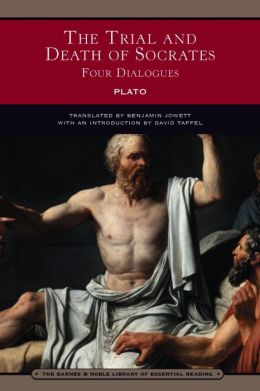The Godly folk have been unusually insistent this week that religion and morality have something to do with each other.
-
Phil Robertson soiled himself with a bizarre story intended to show that an atheist couldn’t object to the rape of his daughters and beheading of his wife.
-
An Arizona state senator thinks it would be a good idea to pass a law making attendance at the church of your choice compulsory, in order to promote “moral rebirth.”
-
Pollster George Barna, collaborating with oddity David Barton, has just had published a book which argues that — What do you know? — Americans need to turn their faces toward the Invisible Wizard if we are to avoid terrible judgments for Our Wickedness.
-
Rand Paul pronounced same-sex marriage to be the consequence of a “moral crises” which can be alleviated only by another “Great Awakening.”
-
Michigan’s Orleans Township Board determined that it ought to begin every meeting with a public prayer because one of the discomfort of one of its members: “It’s been bothering me, because in America in general, we’re doing so much to take God out of everybody’s life.”
But, of course, you may have all the god-god-god you want in your life; you just can’t use public money to insinuate Him into your neighbor’s life. But, as we shall see, we aren’t talking here about careful thinkers.
-
A Mississippi judge lets teenagers off the hook for their infractions if they write an essay about Revelation.
The unifying theme in these stories is clear: There is no morality without submission to a Supernatural Lawgiver.
Honestly, it baffles me that people don’t point and laugh when they hear nonsense like this. For starters, obviously, the clear premise of the claim is that humankind are incapable of moral reasoning — if it were otherwise, there would be no need for an Invisible Wizard to provide instruction. Fine. Let’s accept that premise.
What grounds could the Pious possibly have, then, for saying “God is good”? And what grounds could they have for claiming that Christinity’s ethical teachings are better than Islam’s, or Judaism’s, or Hinduism’s? How could they know, if humankind lacks the capacity for such judgments? And, given that, how do they know they are not the instrument of evil when they slavishly submit to the occult instructions found in an old book? The no-morality-without-god argument, a commonplace of Christian apologists, undercuts them right at the get-go by denying they have the capacity to even know what is good.

Setting aside that obvious, blinking-neon objection, it would do us no harm in these strident times to recall that Socrates put this whole ridiculous argument to rest 2400-years ago, when he met Euthyphro as he was entering court to answer Athens’ complaint that he was “corrupting the youth.”
Socrates is at court to answer a complaint, but Euthyphro is there to press murder charges against his father. A laborer killed one of the father’s slaves, and so the father bound the man and threw him in a ditch while he went to ask the priests what he should do; gagged, tied, and exposed to the weather, the man died. This leads to a discussion of what is right and wrong, and Socrates eventually springs this devastating question: “Is the pious loved by the gods because it is pious? Or is it pious because it is loved by the gods?” This is the hollow spot in divine command-and-control ethics. If the gods love a particular behavior because it is innately pious, then it must be so for some reason anterior to the gods. If, on the other hand, it is the fact that the gods love a behavior which makes it pious, then piety is nothing but the gods’ whims — and ultimately meaningless.
In other words, deferring to the wishes of an Invisible Wizard as the standard of morality achieves nothing but shifting responsibility; ultimately, it is just a device for evading moral responsibility.
Recall the recent case of American Baptist College, which invited a lesbian bishop to address the students. Yet another criticism of that decision was published just yesterday:
If we concerned pastors are guilty of “idolatry of the Bible” as Dr. Harris alleges, then what kind of idolatry is he guilty of? Has he elevated as synonymous with truth his opinion and the opinions of those who agree with him? A kind of idolatry of self? Do people like Dr. Harris and his allies discredit the Bible because they, in the words of Dr. Ben Carson, “need to remove any authority other than themselves as the arbiter of right and wrong?”
A statement from John R.W. Stott is compelling:
The Scriptures have the content, authority, and power for a proper evangelistic message. … God has clothed His thoughts in words, and there is no way to know Him except by knowing the Scriptures. [ … ] We can’t even read each other’s minds, much less what is in the mind of God.
If we are not to discern the mind of God on homosexual conduct from the Bible, where else are we to discern God’s mind on the subject? From the opinions of fallible, vacillating and “evolved” minds like those of Dr. Harris or Dr. McMickle, or any of the rest of us, or even of our President Obama?
The language is plain, and I have not overstated the premise: Humankind are not capable of moral reasoning. This is pure evasion and, at bottom, what Christianity demands is the abandonment of moral responsibility.
So of course the Godly preen about their virtue; how else can their childish evasions be hidden?
